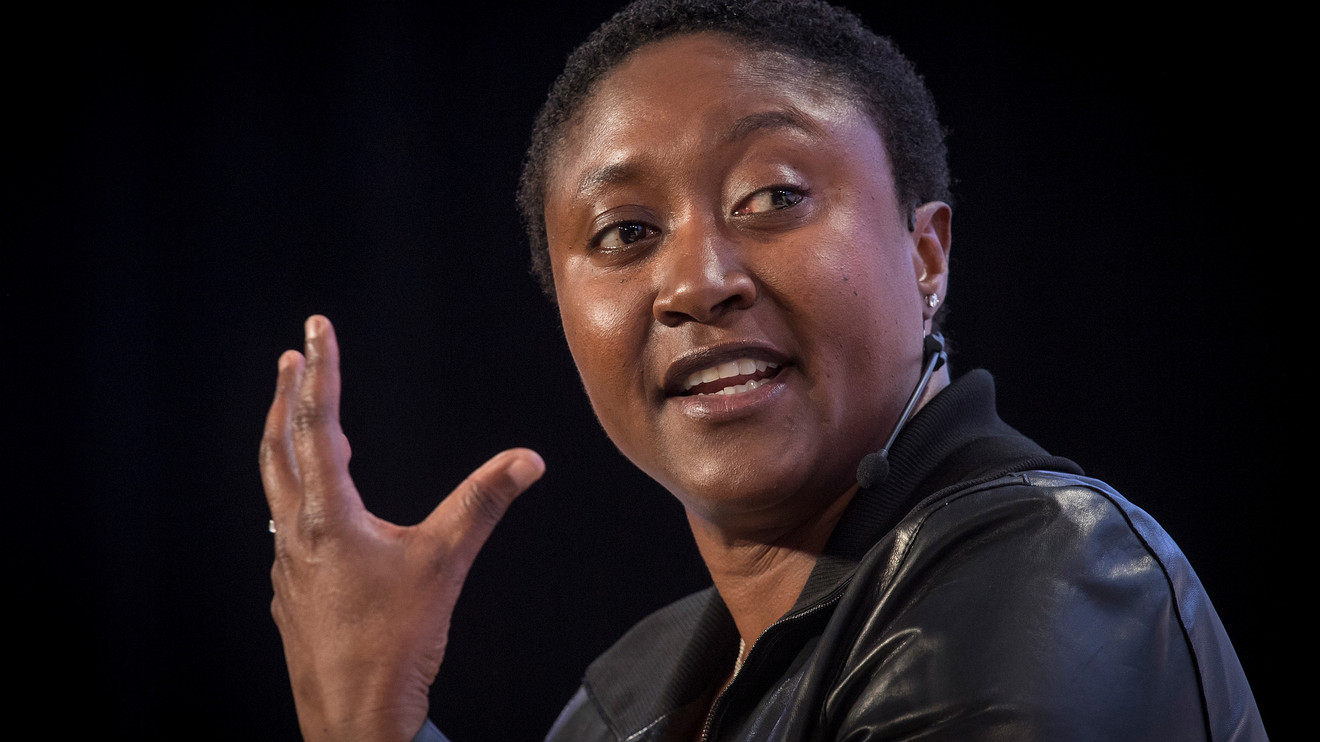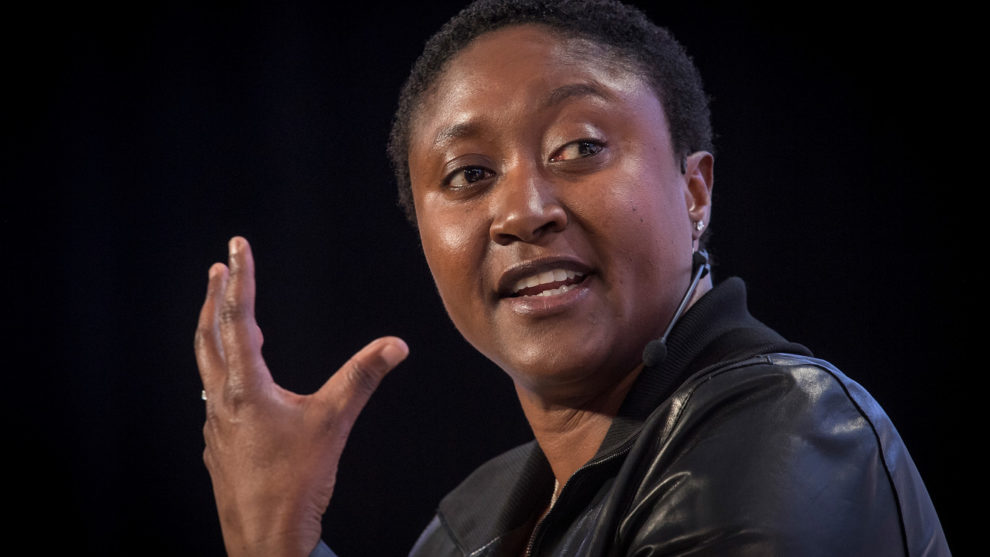
LAGUNA BEACH, Calif. — For Aicha Evans, the road to a “robo-taxi” is as much a journey to culture-shifting change as it is for leadership in a multibillion-dollar industry.
“We want to make a profound impact in how we live as a society,” says Evans, the former Intel Corp. INTC, +1.50% executive who took over the helm of self-driving startup Zoox Inc. in early 2019.
“We want to redesign, recycle and rethink the industry,” Evans told MarketWatch from Zoox’s headquarters in Foster City, Calif.
The Silicon Valley company has been steeped in secrecy for most of its five years of existence. Few have seen its electric car, described in a Bloomberg News report as a “carlike robot about the size and shape of a Mini Cooper.” What tests it has performed of its software system have been in Toyota TM, +0.41% Highlanders traversing the streets of San Francisco and Las Vegas for several months. A commercial pilot is expected in 2021.
How Zoox expects to compete with Alphabet Inc.’s GOOGL, -0.01% GOOG, +0.05% Waymo self-driving subsidiary, Cruise, Aurora, and others is as audacious as Evans’ quest to offer a “moving living room” of luxury that doesn’t contribute to parking and environmental problems. Zoox has burned through hundreds of millions of dollars in funding and is taking a radically different approach.
She’s convinced that Zoox’s approach — design a unique two-seat car without a steering wheel, pedals and dashboard rather than retrofit an auto to be autonomous — will quickly establish it as one of a handful of market leaders.
A fleet of some 40 vehicles were manufactured in the East Bay, and the mystery robo-taxi is being tested at an undisclosed location, also in the region.
Heidi Roizen, a partner at Threshold Ventures who is a member of Zoox’s board, goes so far as to call it a “moonshot” — with immense upside because it tightly blends a unique hardware design with a proprietary software system.
But steep goals also come with high hurdles in terms of technology and manufacturing, warns at least one venture capitalist.
Building a truly autonomous robo-taxi service “is a MASSIVE undertaking,” Brett Battles, a partner at AV8 Ventures, an early-stage venture fund, told MarketWatch in an email message. “Zoox has already raised almost $800M and will likely need more. They also need millions of road miles to train all the AI and computer vision algorithms (which is where Waymo has a massive lead on all competitors).”
Another concern is the absence of a safety driver in a vehicle — as Zoox, Waymo, and others ultimately plan — and its impact on the well-being of its passengers. “We’re headed to a modular train rather than an automobile,” T.J. Rylander, a partner at venture firm Next47, told MarketWatch. To get there, he said, autonomous cars must be 10 to 100 times safer than traditional cars, which contribute to 37,000 deaths in the U.S. annually.
Evans acknowledges the industry has gone from “hype cycle” to “doubt cycle,” but consumers increasingly are getting more comfortable stepping into autonomous vehicles. Driverless cars, for example, have become a staple at CES in Las Vegas in the past few years as the technology gets closer to becoming reality.
Until it surfaces, expect to see plenty of Evans, an engaging sort who has recently raised her profile with speaking gigs at this week’s WSJ Tech Live conference in Southern California, and at TechCrunch Disrupt in San Francisco earlier this month.
Evans joined the company in early 2019. It was time, the 12-year Intel veteran concluded, to move on to the next big risk. She said no to a big technology company she declined to identify before settling on Zoox, whose three-pronged mantra of “do no harm,” “complete the mission” and “make the experience great” appealed to her.
Quoting Madam Curie, Evans said it was time to start a new chapter. “She once said, ‘Nothing in life is to be feared, it is only to be understood. Now is the time to understand more, so that we may fear less.’”
“I earned the right in my career not to work with a–holes,” says Evans, a native of Senegal who lived in France; Israel; Washington, D.C.; Portland, Ore.; and Austin, Texas, before settling in the San Francisco Bay Area in 2012.
“It is normal for human beings to have trepidation about technology,” says Evans, an engineer by training. “I consider myself a balanced engineer who talks as much about the personal side.”












